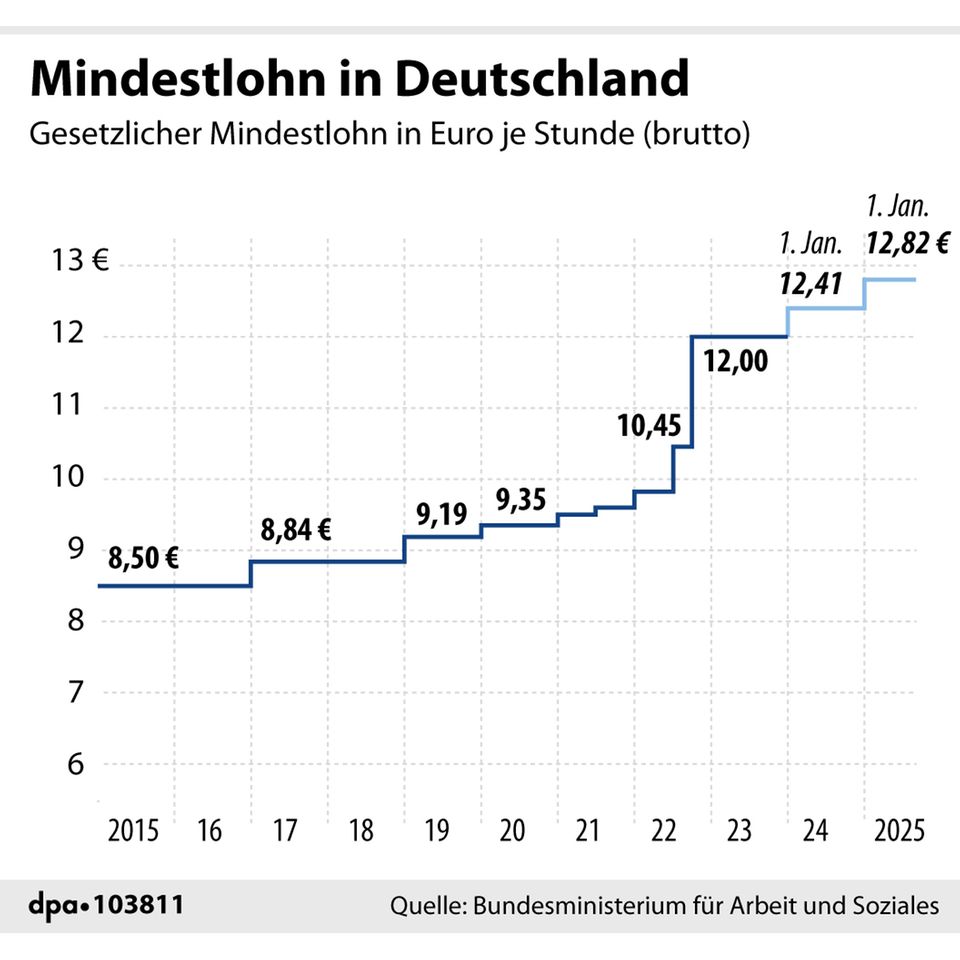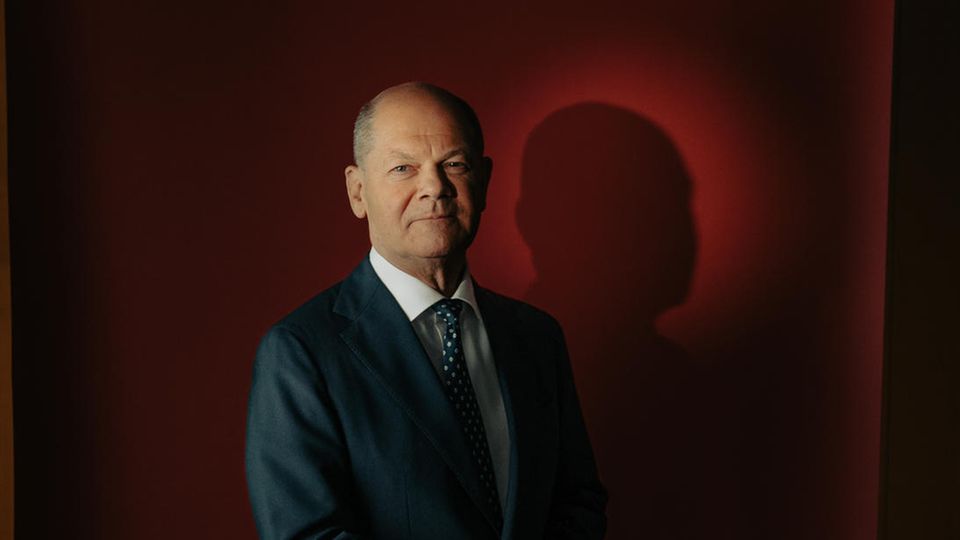labour market
Expert on the 15 euro minimum wage: “Scholz acts cleverly”
For the 2021 federal election, SPD candidate Olaf Scholz campaigned for a minimum wage of 12 euros.
© IMAGO / Arnulf Hettrich
Chancellor Scholz has made his first election promise: He wants a minimum wage of 15 euros. His problem: This is not decided by the federal government, but by a commission made up of employee and employer representatives.
“With Scholz’s demand for a 15 euro minimum wage, he wants to put pressure on the minimum wage commission,” says Christoph Schröder. The income policy expert at the employer-related German Economic Institute explains this starwhat the Chancellor wants to achieve.
“Actually, the minimum wage commission made up of employee and employer representatives decides on changes. The government cannot easily influence the level of the minimum wage.” The law states: The commission discusses possible adjustments every two years. The last increase took place on January 1, 2024 from 12 euros to 12.41 euros.
The minimum wage can also increase unscheduled: For the 2021 federal election, candidate Scholz promised an increase from 9.60 euros to 12 euros gradually, which happened in October 2022.
“Too high a political price for Scholz”
This type of unscheduled and sudden increase should take place once. In addition to the Commission’s right to adjust the minimum wage, collective bargaining autonomy also applies according to the constitution. This means: It is the responsibility of employees and employers – or organizations such as unions and employers’ associations – to regulate wages and working conditions independently and without government interference through collective agreements.
However, the state minimum wage itself is an interference in this collective bargaining autonomy. When it was introduced in 2015, that was exactly the criticism: suddenly the legislature set a minimum salary level. From then on, at least further developments should rest with the Commission. The idea: The minimum wage should be determined in much the same way as collective bargaining wages are determined, i.e. in the dispute between unions and company representatives.
The problem: One side can outvote the other side in the commission; there is no pressure to reach an agreement. The last increase to 12.41 euros was made without the consent of employee representatives, who felt that a larger jump would be necessary in times of high inflation. That’s why the decision was politically controversial.
“Theoretically, the Chancellor can still adjust the minimum wage,” explains expert Schröder. “To do this, the government would have to change the minimum wage law. It can do that at any time.” However, such a decision could lead to a loss of trust in the Minimum Wage Commission, said Schröder.
“The employers’ side in particular could feel offended and ignored. In extreme cases, they could even leave the commission.” In addition, this would be a breach of the coalition agreement, which could lead to further disagreements at the traffic lights and could potentially be exploited by the opposition. “All of this would probably have too high a political price for Scholz.”
“Law change unlikely”
So what does the Chancellor want to achieve with his demand? Scholz made the statement in Interview with the star. His exact words: “I am clearly in favor of raising the minimum wage first to 14 euros, then in the next step to 15 euros.” He did not mention a time for such an increase in the conversation.
“Scholz acts cleverly by avoiding naming a point in time,” says expert Schröder. “The next regular increase would be January 1, 2026.” Then we would definitely see a larger jump, as collective wages have already risen more sharply this year and last, said Schröder. The development of collective wages is the main guideline for the Minimum Wage Commission.
“In 2026, this would probably result in a value that is closer to 14 euros than 13 euros.” However, Scholz’s early establishment of 15 euros puts the Commission under pressure. “It seems to me rather unlikely that there will actually be a change in the law. Instead, political pressure is being built on the Minimum Wage Commission in order to achieve a higher value in the end.”
Minimum wage could become an election campaign issue
The change in the law could also become part of the election campaign again – after all, the coalition agreement doesn’t matter. Other parties such as the Greens and the Left have already spoken out in favor of a higher minimum wage.
Schröder is ambivalent about the effects that a minimum wage of 15 euros could have on the labor market. “Another significant increase in the minimum wage would overwrite the agreed collective wages in the lower wage groups in many industries.” This usually leads to rising wages even above the minimum wage limit.




